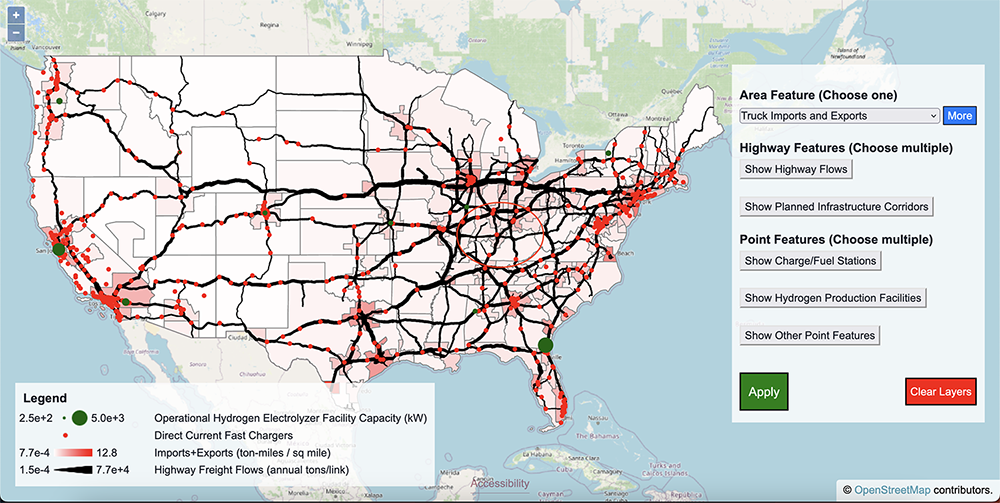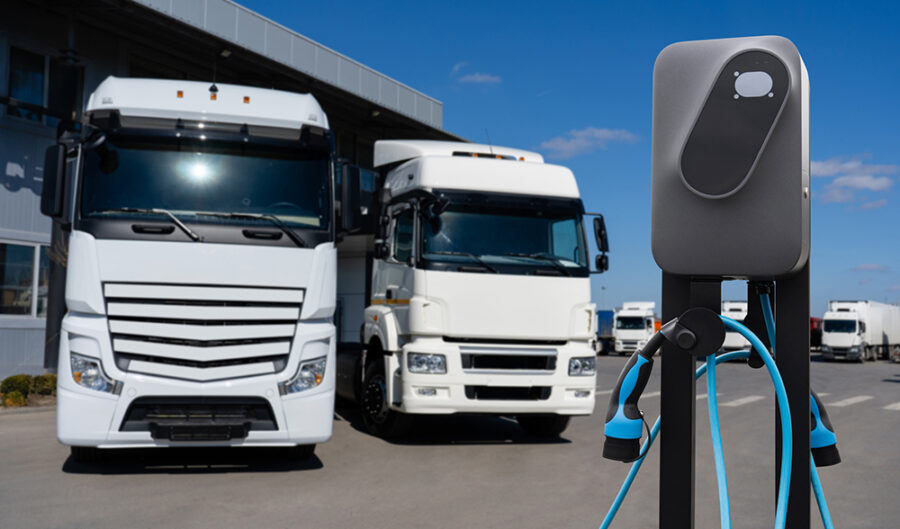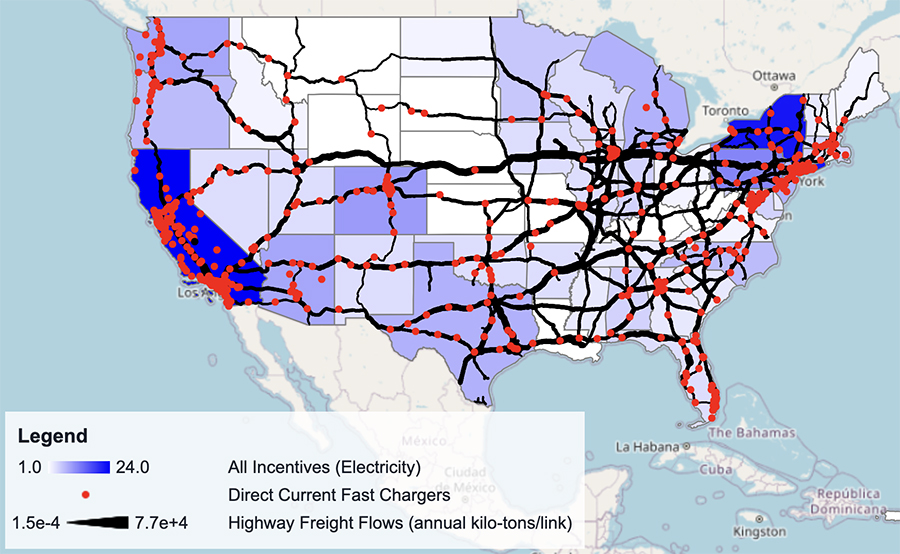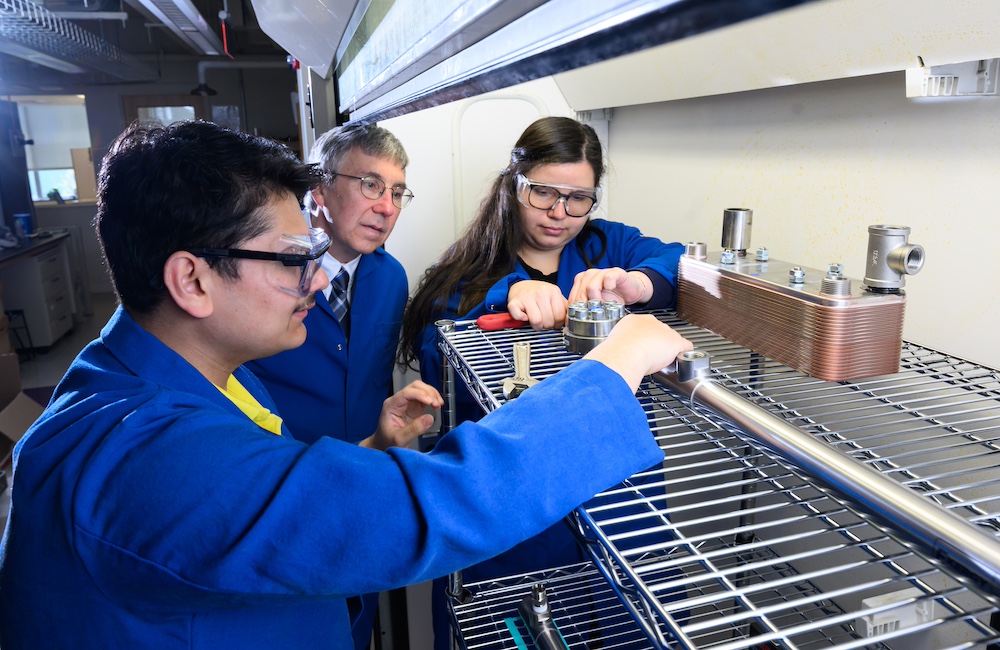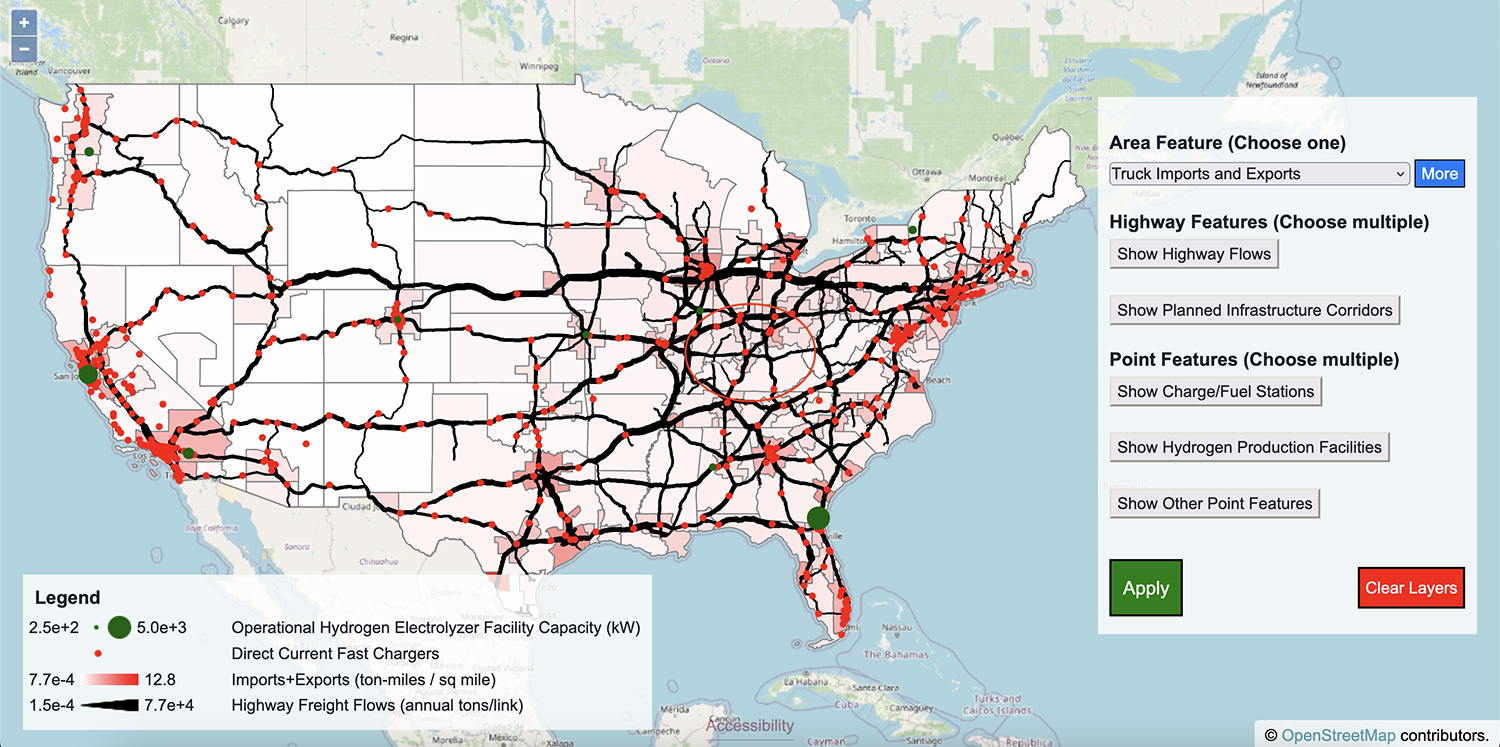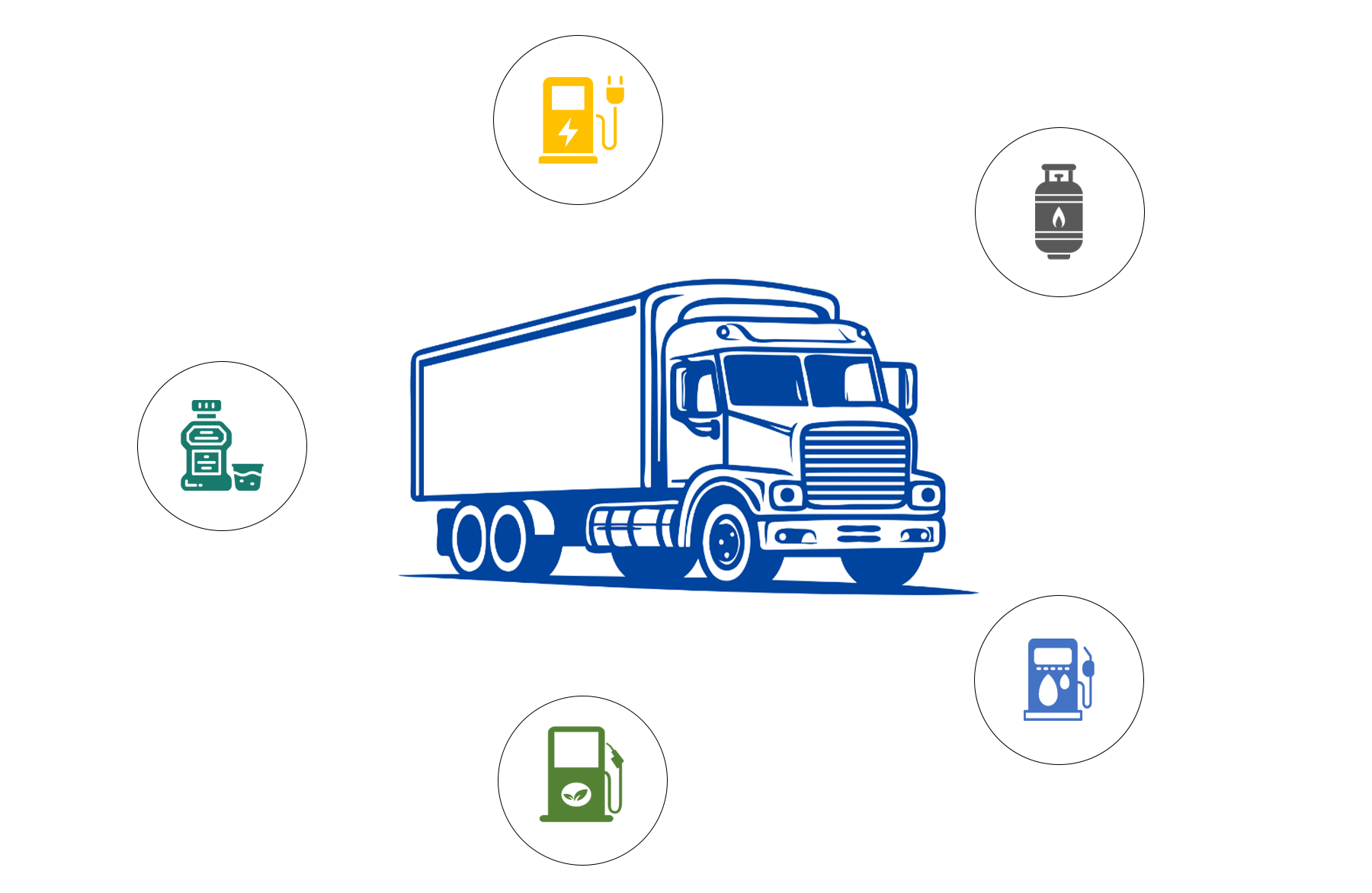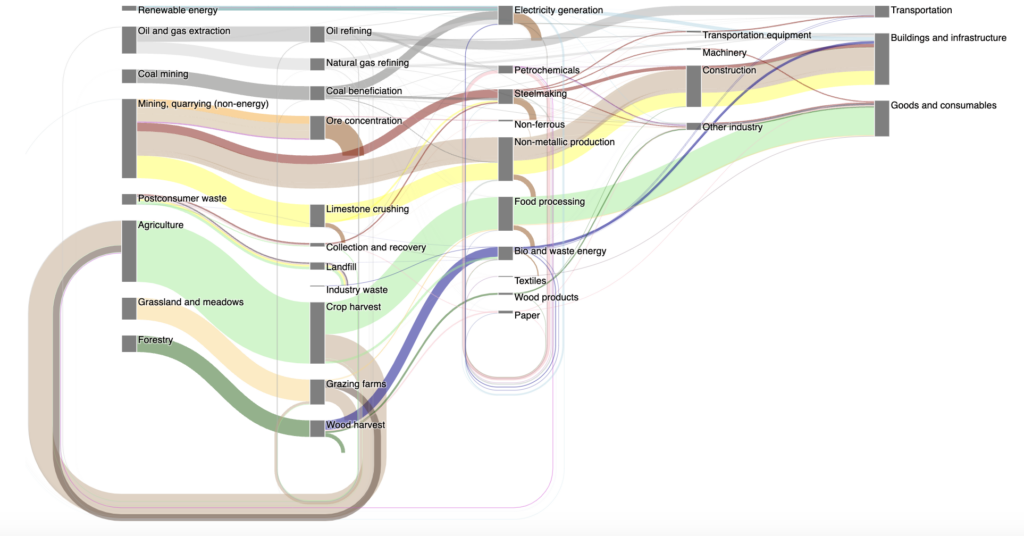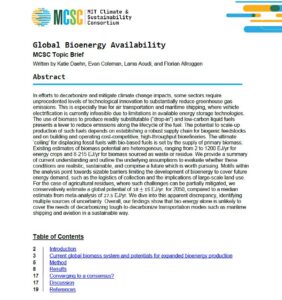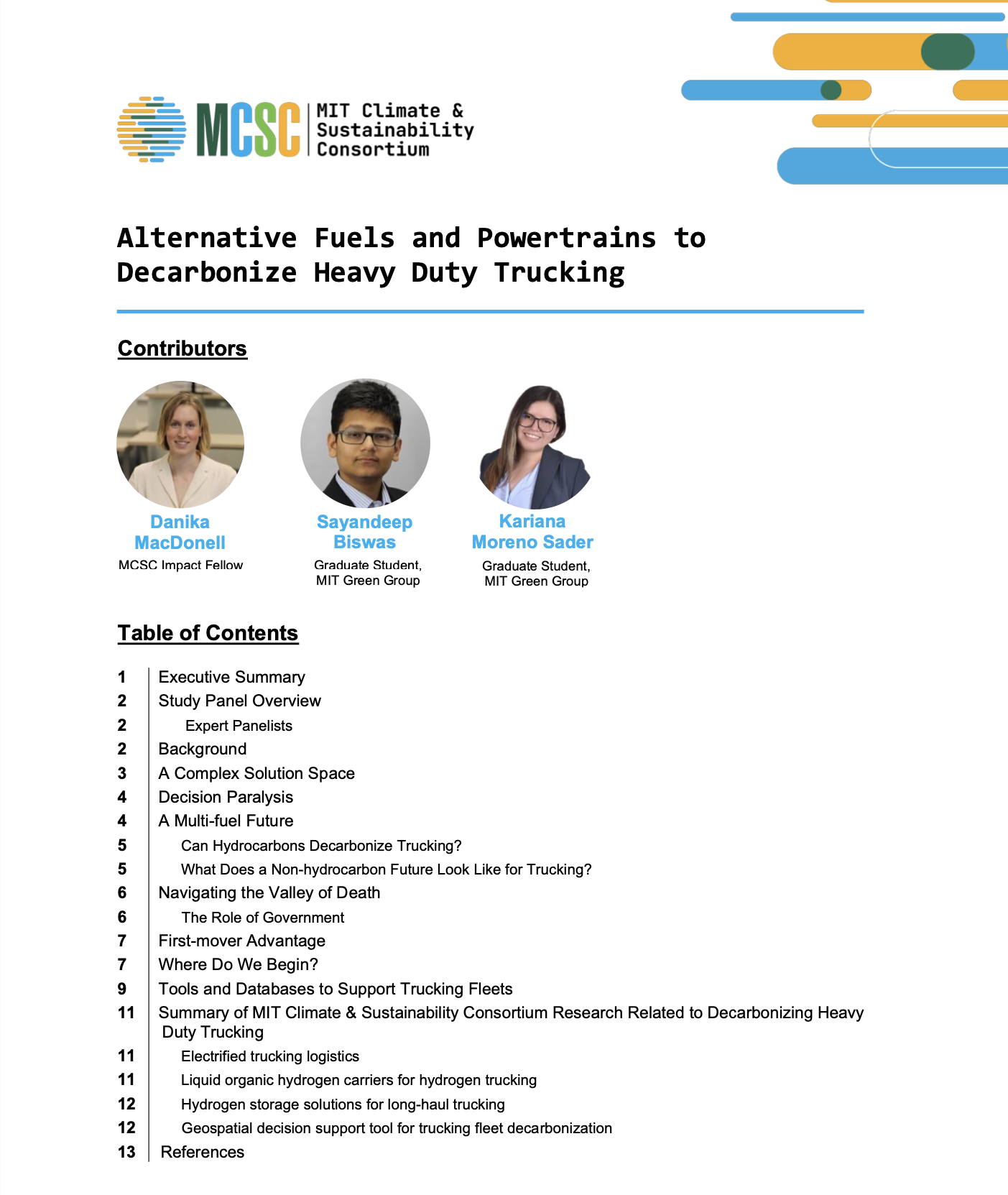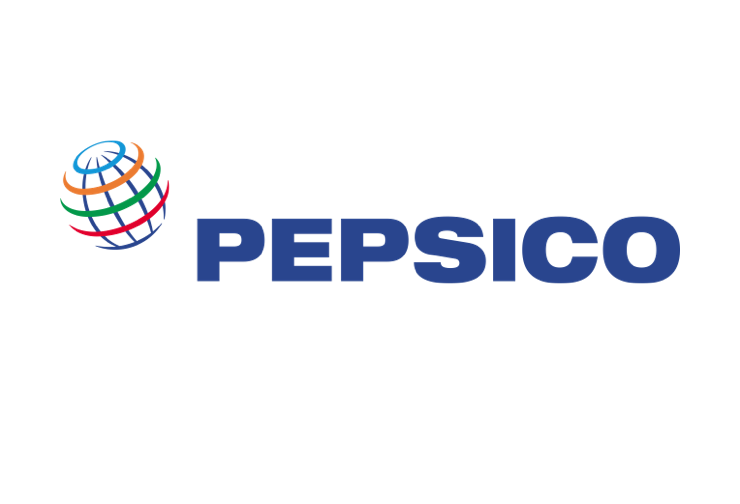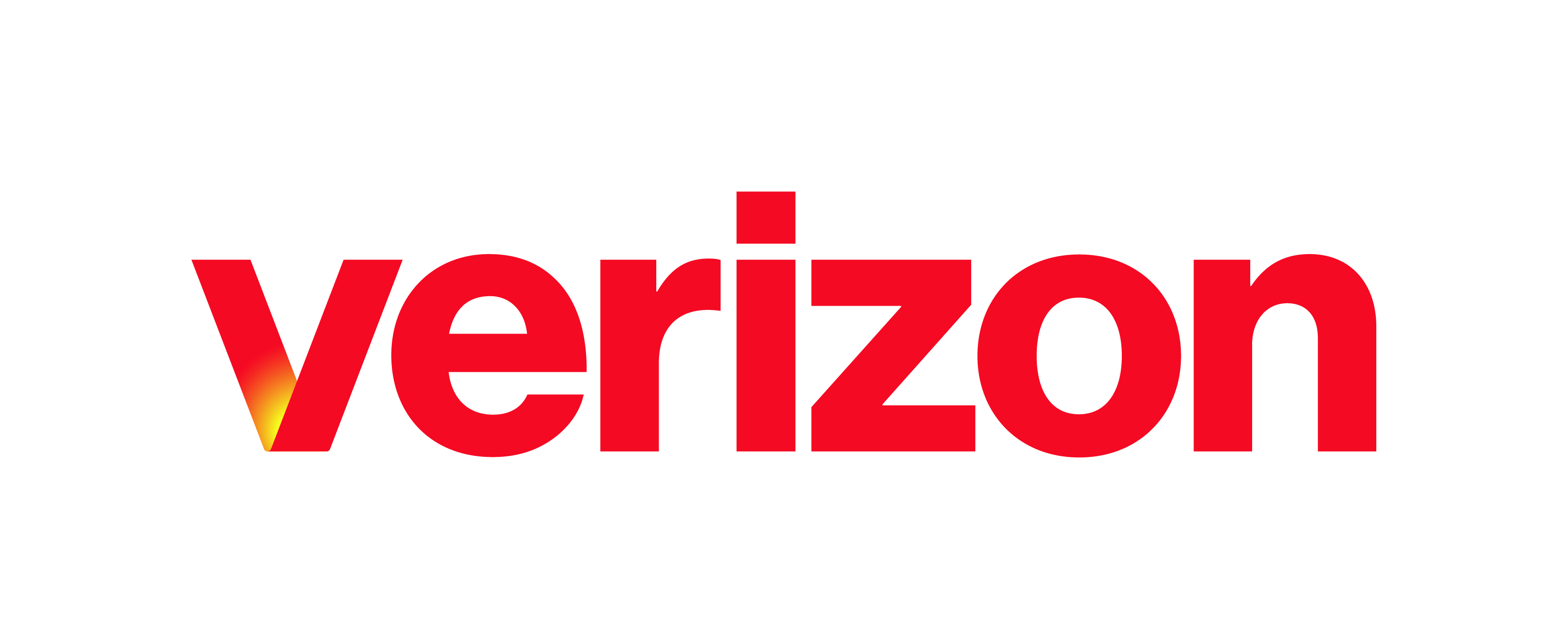Tough transportation modes
Projects
Impact Fellow/Core
- Geospatial decision support for trucking fleet decarbonization (MacDonell)
- Interactive geospatial mapping tool to support regional decision-making for stakeholders in the trucking industry considering the transition to alternative fuels and powertrains. Read more.
- Global biomass availability (Daehn, Coleman)
- Quantifying global biomass availability, in particular from waste biomass streams, for estimating the global production capacity of biofuels
- Assessing the viability of the global low-carbon fuel supply chain for maritime applications (MacDonell, in collaboration with the MIT Energy Initiative)
- Assessing the supply chain viability of alternative low-carbon maritime fuel pathways for the global shipping fleet based on science-informed technology and process improvement potential, and evaluating associated GHG and non-GHG impacts.
Seed
2024
- Optimization and collaboration toward a scalable charging infrastructure in logistics (Amin, Jacquillat)
- This project will contribute new algorithms in large-scale integer optimization (building upon vehicle routing and facility location methodologies) and mechanism design (building upon network formation games and pricing mechanisms). It will contribute new decision tools and policy recommendations to support the ongoing transition toward the electrification and decarbonization of long-haul logistics.
2022
- Powertrain and system for LOHC-powered long-haul trucking (Green)
- This team proposes a different energy carrier for long-haul trucks and certain ships: Liquid Organic Hydrogen Carriers (LOHC), room-temperature liquids that can release gaseous hydrogen fuel. The proposed decarbonization concept for trucking and some shipping has the potential for relatively easy worldwide implementation, delivering needed reductions in GHG emissions from the transport sector.
-
Seed Award Summary
- Hydrogen storage and delivery solutions for trucking (Winter)
- This team is designing and prototyping new hydrogen storage design for heavy-duty hydrogen fuel-cell trucks.
-
Seed Award Summary
- Climate and air quality impacts of ammonia in shipping (Selin, Barrett)
- This team is studying the potential climate and air quality impacts of large-scale utilization of ammonia for maritime shipping.
-
Seed Award Summary
- Logistics electrification through scalable and inter-operable charging infrastructure: operations, planning, and policy (Jacquillat)
- This project will contribute new models and algorithms for optimization of road freight, combining vehicle routing and facility location models. It will contribute new decision tools and policy recommendations to support the ongoing transition toward electrified logistics.
- Sustainable separation and purification of biochemicals and biofuels using membranes (Lienhard)
- This investigation will begin by building a computational platform to predict the chemical potential of molecular species in complex multicomponent mixtures – combining group contribution and neural networks. Grand Canonical Monte Carlo combined with Gaussian process regression will be used to directly estimate and bound chemical potential estimates in multicomponent mixtures. The chemical potential model will be used to estimate the energy savings attainable using RO for two key biochemical and biofuel separations, guiding future membrane and materials development.
Contact Us
Get in touch with the MCSC
If you would like more information, please e-mail mcsc@mit.edu.
Who’s studying this
Research Scientist
Research Scientist
MCSC Impact Fellow

